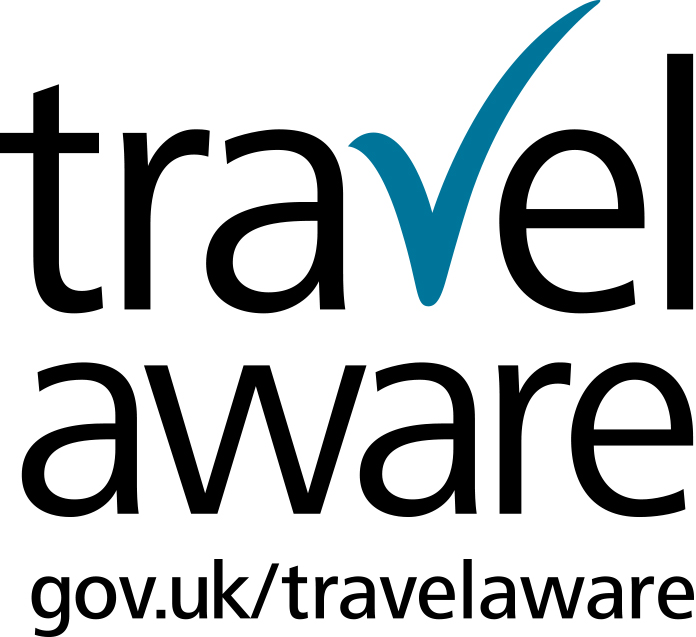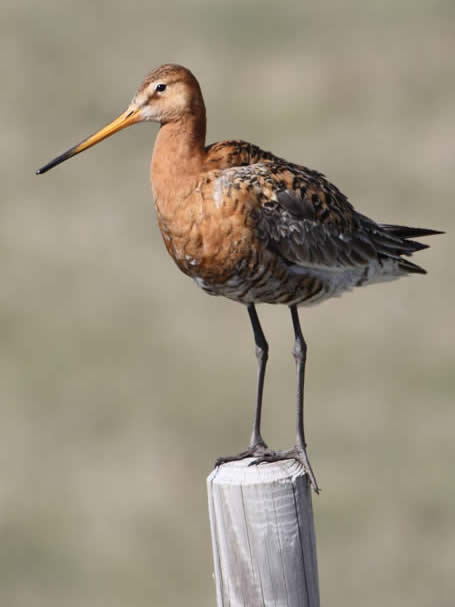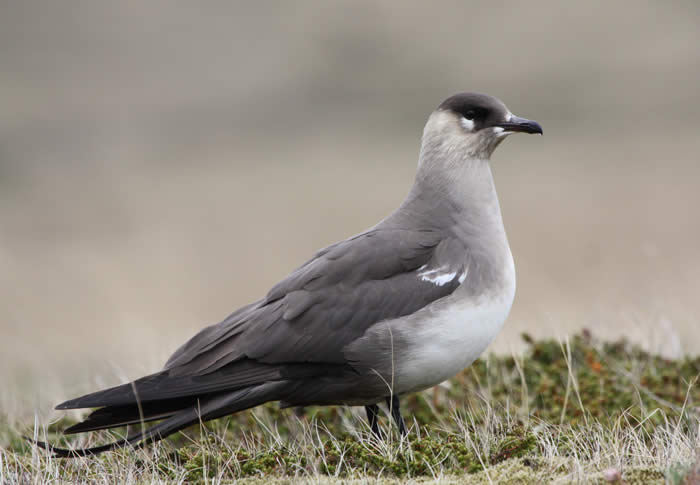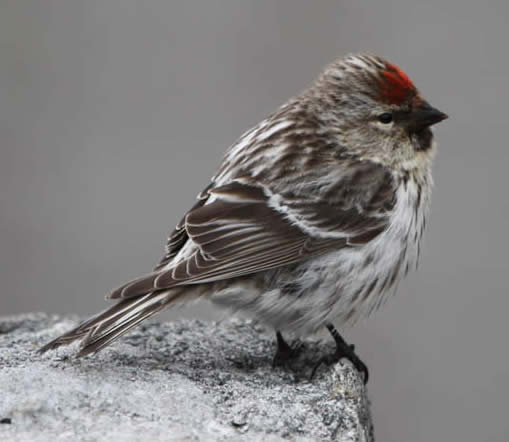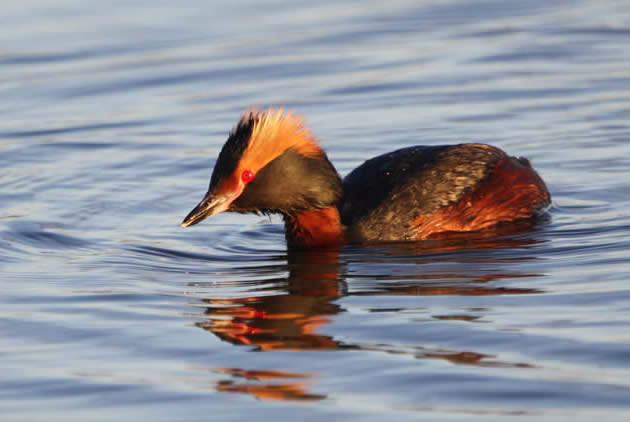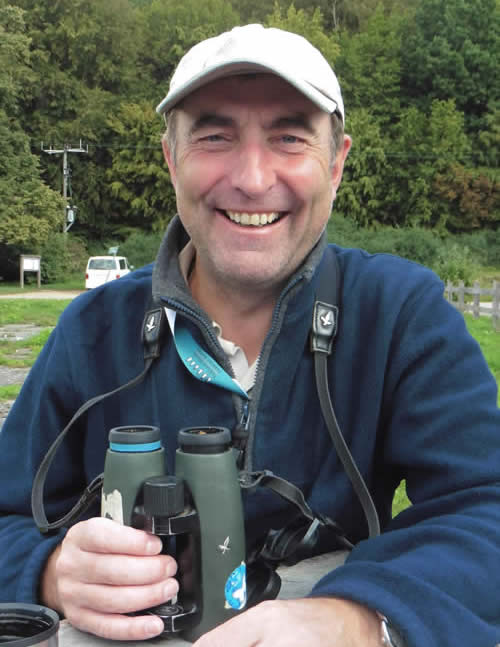Iceland 17 – 25 June 2022
Birds, Whales & Landscapes
Iceland is ‘out of this world’. The sheer volume of birds here is staggering, with an estimated six million puffins alone, and nowhere else can you see great northern diver, Barrow’s goldeneye and the stunning harlequin duck breeding outside North America, except for this European outpost. If we are really lucky we may relocate the pair of snowy owls we found on a previous visit.
Yet there is even more to this unique country; glaciers, an uninhabited stony desert interior, volcanoes, lava fields, countless waterfalls, a geyser which blows its top every few minutes, steaming fumaroles, bubbling hot springs, boiling mud pots, spectacular cliffs jam-packed with seabirds and various whales offshore. Even non-birding partners will love this trip. So, prepare for an amazing journey, during the ‘white nights’ of June.
Itinerary and wildlife highlights
We fly with Icelandair, from either Glasgow or Heathrow, to Keflavik (Reykjavik). Once landed we drive north to the Snaefellsnes Peninsula, where the rugged coastline is home to five species of auk, including Brünnich’s guillemot, as well as purple sandpiper, Arctic skua, plus Iceland and glaucous gulls.
From our two night base in Stykkishólmur, we take a ferry across Breidafjördur Bay to Flatey Island, where we land in search of the rare grey phalarope, resplendent at this time of year in deep red breeding plumage. Other birds here include redwing, snow bunting, ridiculously tame red-necked phalaropes and loads of Arctic terns.
Red-necked phalarope
After an exploration of the Snaefellsnes peninsula, we head east through a spectacular landscape, including Godafoss, where the Skjáfandafljót river cascades over one of the most impressive waterfalls in Iceland. Next, we have the luxury of three nights in our second hotel on the shores of Lake Mývatn, famous for its wealth of wildfowl, such as whooper swan, greylag goose, and fourteen duck species including Barrow’s goldeneye, harlequin, long-tailed duck and common scoter.
Harlequin ducks
Other birds to hope for here include great northern diver, Slavonian grebe, gyr falcon, merlin, ptarmigan, golden plover, whimbrel, rusty red black-tailed godwits, short-eared owl and common (meally) redpoll. Nearby are the unearthly landscapes of Nàmafjall and Leirhnjúkur, where the steaming yellow earth and black lava will make you wonder what planet this is. We also drive into a desolate monochrome lunar-like terrain to look for pink-footed geese and to experience the awesome power of Dettifoss, as tons of glacial melt water pour 148 feet over Europe’s mightiest waterfall.
A steaming fumarole.
Next we enjoy a whale watching trip in Skálfandi Bay, hoping for close views of humpbacks, minkes and white-beaked dolphins. In 2018, these cruises had a success rate of 99.2%! Heading south, snow conditions permitting, we cross the uninhabited interior, where the tundra is home to Arctic foxes and, we hope, snowy owls.
Humpback whale.
Next we do the ‘Golden Circle’, a selection of ‘must see’ locations like the famous geyser, which regularly spouts as high as a house, Thingvellir, where the American and European tectonic plates are slowly tearing Iceland apart, Gullfoss, where the torrent crashes 108 feet over two tiers of rock, and finally, some sightseeing time in Reykjavík. After our last night here we catch a morning flight back to the UK.
Holiday details
Because of the size of Iceland, this holiday has five hotels over eight nights, including an airport hotel on the final night. These include Fosshótel Stykkishólmur (2 nights), Icelandair Hotel Myvatn (3 nights), Hotel Kjarnalundur (1 night), Hotel Geysir (1 night) and an airport hotel (1 night).
Price: £3000 per person in twin room for eight nights (Sunday to Monday).
Single room supplement: £600
What the price includes: return flights to Keflavik with Icelandair, eight nights’ half board en-suite accommodation, all transport in Iceland, whale watching trip, return ferry to Flatey Island, bird checklist and guidance.
What the price excludes: lunches, drinks with meals; personal spending. Be aware that Iceland is probably the most expensive European destination.
Flights: 2022 scheduled flights/times noted below, with Icelandair from various airports to Keflavik (Reykjavik's international airport). With an airport hotel on the last night, the plan is to make an early departure possible (Gatwick, Heathrow). Group members may choose to spend time in Reykjavik and take a later flight to Heathrow or Manchester.
London Gatwick - Keflavik
17 June: FI471 depart London Gatwick 13:05 arrive Keflavik 15:15
25 June: FI470 depart Keflavik 07:45 arrive London Gatwick 11:50
London Heathrow - Keflavik
17 June: FI451 depart London Heathrow 13:05 arrive Keflavik 15:15
25 June: FI450 depart Keflavik 07:40 arrive London Heathrow 11:55
[or 25 June: FI454 depart Keflavik 16:10 arrive London Heathrow 20:20]
Manchester - Keflavik
17 June: FI441 depart Manchester 13:00 arrive Keflavik 14:50
25 June: FI444 depart Keflavik 17:00 arrive Manchester 20:50
Glasgow - Keflavik
17 June: FI431 depart Glasgow 12:50 arrive Keflavik 14:05
26 June: FI430 depart Keflavik 07:55 arrive Glasgow 10:50 (25 June no longer available)
Deposit: £400
Maximum number (two leaders): 14, subject to review depending on coronavirus rules. The 2022 holiday is running with one full minibus and one guide (Christopher Hall).
Leader(s)
Christopher Hall runs his own birdwatching company, New Horizons, though he is moving towards guiding for others and leaving the administrative roles behind; this partnership with Honeyguide is a step in that direction. Iceland is one of many birdwatching destinations he knows well and follows Falsterbo, our first joint project. His wildlife watching tours for a growing ‘family’ of loyal regulars means he has guided over 150 tours worldwide. He has also been a science teacher and run birdwatching evening classes. We will organise a driver for the second minibus.
Conservation project
Iceland still allows whaling, which resumed in 2022 after a three year gap, and it remains a live issue and contentious issue. We deplore whaling, and the consensus from local conservationists is not to boycott Iceland but to demonstrate the importance of eco-tourism, including whale-watching, such as on this holiday.
For those booking through Honeyguide on this holiday, our conservation donation of £40 per person will go to Whale and Dolphin Conservation, which campaigns for the survival of whales and dolphins, including against whaling in Iceland and elsewhere. WDC summaries the state of play here: whaling in Iceland, which outlines how there was no whaling in 2019-21 but hunting of fin whales resumed in 2022.



